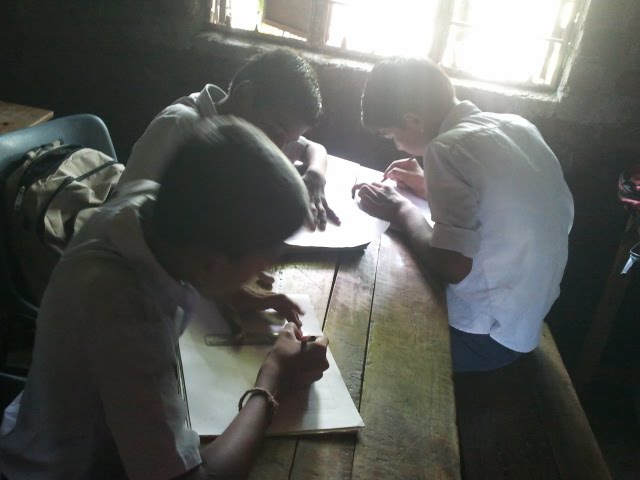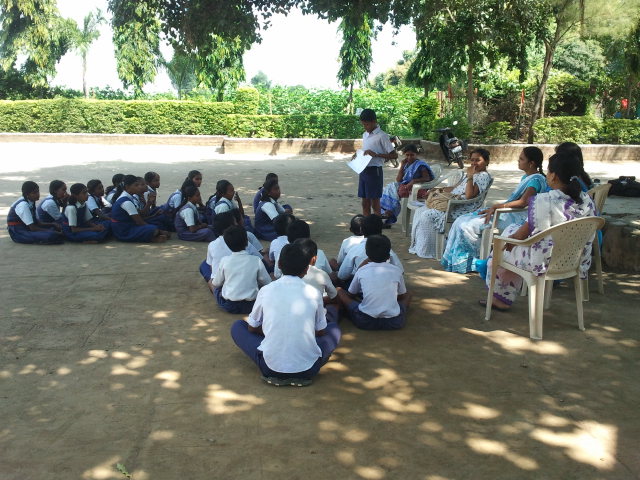Women in India are treated as untouchables or even worse during their menstrual cycle. Have we ever stopped to think why we let this happen? Why are we constantly victimizing women when this is a routine procedure that women go through to complete their womanhood?
Stepping into their teens isn’t the most happy memories for many, especially for girls from rural parts of India. For them talking about their first period openly to anyone is considered a shameful act to an extent that they are not allowed to continue with their routine life and are asked not to use the same facilities as the family uses.
Water Supply and Sanitation Collaborative Council (WSSCC) at The Great Wash Yatra conducted a survey based on Menstrual Hygiene Management which allowed us to go to schools and understand the problems faced by the girls. This helped in giving me a clear insight into menstrual management. We were divided into groups and sent to various schools in the district to take surveys regarding the menstrual hygiene management as the menstrual cycle is considered a taboo, girls of that age end up knowing very little about the basic steps to be followed.
Most of them use cloth instead of sanitary napkins and many of them don’t understand and wonder why it happens. Due to not taking proper care during the following period, many of them end up having a lot of health related problems. Our aim was to understand their emotions, reactions and also creating an awareness towards the topic. We were accompanied by volunteers from The Centre of Sciences for Villages. In our survey the girls belonged to class 7.
Our first stop was at a village called Surgana in Maharashtra. We were directed by the Principal to the allocated class .The boys and girls were eager to know our purpose of visit. We started out by asking them to draw their dream school. All of them took a minute to think and took out their pencils and starting drawing.

After they were done, the boys were taken out of the class so that we could talk to the girls about their menstrual hygiene. In a class of 20 girls, only 2 of them had started their cycle. Out of the two girls, one of them was very shy and embarrassed to talk about it but with the encouragement from her teachers, she answered our questions. The other girl was happier to share it with someone other than her friends and that she was allowed to talk about it openly.
After we were done with our survey, we educated the other girls in the class about menstrual hygiene. Also we told them that it was completely normal to talk about it and was nothing that was to be ashamed of as every girl gets it at a certain age and it helps us in completing our womanhood and they should feel proud about. The teachers in the school were very helpful and also kept asking us questions. Seeing this, the girls felt a lot more confident about the topic in hand. After our session with the girls, the boys were called back in. From the various drawings we had collected from the children, we selected one which had all the facilities including washrooms, dustbins etc. They all looked enlightened and seemed happy with the knowledge that they had gained.

The second school we went to was in a slightly bigger village called Arvi. It was an all girl’s school with around 10 girls who had started their cycle. What was different here was that the most of them used sanitary napkins and were more aware. They were eager to know more and asked us many questions related to the topic. It seemed like they were happy that they didn’t have to be embarrassed talking about it. One of them kept asking us questions and didn’t give the others a chance. It was overwhelming to see their enthusiasm and willingness to acquire information.
Overall it was an eye-opening experience for me which helped me getting a clear insight. Living in Urban cities we don’t really know what’s happening in the rural areas. For us, it’s our monthly cycle which is treated very casually but in most of the villages, many girls are kept at home, in a separate room and are not allowed to talk about it. We complain about the pain we go through during our period but they are the actual victims. But when they are asked about how they to be treated like that, they reply with a smile saying they don’t have any complaints. But after our survey they seemed more enlightened, aware and also in future will give them the courage to go up to a shop and buy a sanitary napkin.
By Aneesha Menon, Fellow, India Water Portal , Arghyam
For full coverage by India Water Portal of the Nirmal Bharat Yatra, click here.
/articles/nirmal-bharat-yatra-breaking-menstrual-taboo-rural-maharashtra-0